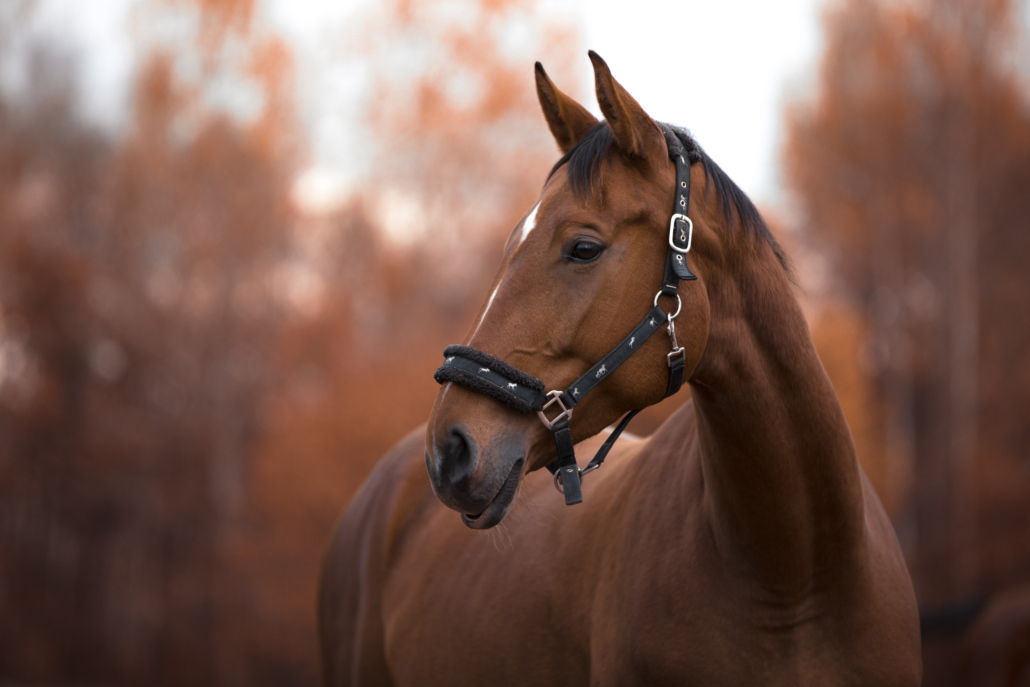Unable to keep your horse? Look into Responsible Placement Options.

For a variety of reasons, there comes a time in many horse owners’ lives in which they are no longer able, physically, or financially to provide care for their horses. Sometimes the horse is very much wanted, but an owner’s circumstances do not allow them to keep their beloved horse. Owners may become ill, or have a change in their financial capability to care for a horse. A rider may outgrow their horse both in size and skill, and in turn a horse may also be better suited for a career change depending on age, temperament, and soundness. It can be commonplace for a horse to change hands frequently throughout their life, but changing hands, can and should be done responsibly. Here are some options from the United Horse Coalition.
*If you find yourself in a situation, in which you want to keep your horse, but need temporary assistance until you can get back on your feet physically or financially, there are various safety net programs available to help. Please visit UHC Safety Net Programs and Resources for more information.
Horse owners should feel a moral obligation to make sure their horse in transition ends up receiving proper care and treatment. Legally, as a seller, you must share anything important you know about the horse’s behavior and physical condition. If the horse is healthy and of a reasonable age, it is always best to find a suitable new vocation, owner, or home, rather than have to euthanize the horse. On the other hand, if the horse is old and not in good health, has a dangerous behavioral issue, or is suffering, then the most humane decision may indeed be euthanasia – this is a decision between you and your veterinarian.
In most cases, there are 4 options available to owners: sale, donation/gift, surrendering to a rescue/sanctuary, or euthanasia. The options available to you may be based on the health, soundness, age, training level, and temperament of your horse. Some options have strict criteria for qualification; not every horse is suitable for every job. For more information visit our Resources for Owners section.
Private Sale
Selling your horse to another person enables you to meet and perhaps develop a relationship with the buyer. There are many ways to advertise your horse for sale, including classified ads in your local paper, horse magazines, websites, feed and tack stores, shows, or rides in your area, or by directly contacting other horse owners and letting them know you’re marketing your horse for sale. Prices and conditions vary by sale and by region, so be aware of standards in your area. Also, in a private sale, you might have the option of putting a buy-back agreement into the sale. So if the new owner decides to sell the horse, you’ll have an opportunity to buy the horse back. Please remember to disclose any health problems, limitations or vices that your horse might have when selling him, this will help to ensure that your horse is well-matched in the new home, and lessen the chance your horse could be put into a situation where it becomes at-risk. You may also want to consider microchipping your horse so that you can be contacted and given the opportunity to purchase or receive them back should a situation arise that warrants it.
Auction:
Although Auction is another option for selling your horse, we strongly encourage owners to pursue other available options first. Local sale barns or fairgrounds can provide you with auction dates. Additionally, some auctions are advertised in newspaper classifieds or at feed and tack stores, and on various websites. We caution owners to be aware of the types of animals that are being sold at various auctions and to do their due diligence. Almost all “horse auctions” involve the sale of horses to individuals who want to buy a horse for various purposes, such as racing, showing, stable horses, or recreational riding. Many of these horses have “reserves” or minimum bids that must be paid for the sale to be completed. Indeed, at many the seller can speak to the auction company and set a price below which the horse would not be sold; it would be returned to the seller. Other sales do not have such minimums and the horse is sold regardless of the bid price. At livestock auctions, dealers purchase horses to take to facilities that will process the horses for meat to be shipped overseas for human consumption, and it is important that all owners be aware of this possibility when they send their horse(s) to auction. Read more about our Buyer Beware on Kill Pen Operations
Leasing:
An increasingly popular form of horse “ownership” is leasing. Provided the horse is sound with a good disposition, many people are interested in owning horses that would prefer this try-before-you-buy option. It provides an opportunity for potential owners to see how a horse would fit into their lives. As leasing grows in popularity, so do the forms of lease payments. You can loan the horse in exchange for boarding and daily care, or you can create another lease deal with the lessee.
Retirement:
A retirement facility can be compared to an assisted living facility for people. The staff is trained in caring for the health issues facing older horses and those with injuries. More often than not, retirement facilities house horses that are no longer used for riding and working. Not only elderly horses but horses that have ailments but are still comfortable to walk and graze. Their daily routines should include lots of turnout with buddies and good, quality attention. Of importance, a good retirement facility should have plenty of pasture. A key issue with elderly horses is that they need room to move around to combat arthritis — horses standing in box stalls will stiffen up quickly. Another thing to take note of is if specialized care is offered – such as custom feed, special medical attention, and an educated staff that understands the needs of your horse. Retirement facilities are not free for the most part. The owner pays a monthly board bill just as you would at any boarding facility. There are retirement facilities in which you can donate your horse, but you would no longer own him or control what happens to him. Most of these are for specific breeds. In some cases, horses must be at least pasture sound — some may go on to second careers, while most spend the rest of their days eating grass. Unsound or “pasture pet” horses are only accepted for retirement at some facilities with a yearly tax-deductible donation for the ongoing care of the horse.
Surrendering your horse to a Rescue or Sanctuary:
If you are in a position in which safety net programs are not an option, and you are unable to pursue other placement options due to limited resources or the horse’s suitability for a particular program, the next best course of action would be to pursue placement of your horse in transition through reputable Equine Rescues and Sanctuaries. Even if a rescue does not have the physical space to accept the horse, they may offer direct placement services or other available options to find a suitable home without entering the rescue directly. Rescues and Sanctuaries can often network to keep a horse who is in a transitional phase, from reaching an at-risk state.
There are many different Rescues and Sanctuaries available to choose from Nationwide, with as many different missions and policies regarding the horses they take in. Although the UHC does not endorse one particular facility, it supports the Care Guidelines for Equine Rescue and Retirement Facilities, developed by the American Association of Equine Practitioners (AAEP). If you’ve decided to find a Rescue or Sanctuary for your horse, we strongly encourage you to read these guidelines and ensure the facility you’re considering operates by them. The AAEP guidelines were intended for rescue and retirement facilities, but any facility that accepts horses should adhere to the basic principles outlined in these guidelines.
In addition, we have also included a list of important questions you should ask before re-homing or surrendering your horse in order to ensure that your horse is placed with the best-suited organization. This list can be found here: https://unitedhorsecoalition.org/24-questions-to-keep-in-mind-if-you-need-to-rehome-your-horse/
Therapeutic Riding Centers:
Therapeutic riding centers are found in cities and towns across the nation. These centers provide a variety of equine activities to people with physical, emotional and learning disabilities. For individuals with special needs, equine-assisted activities have been shown to improve muscle tone, balance, posture, coordination, motor development, as well as emotional well-being. The North American Riding for the Handicapped Association (NARHA), a national non-profit organization, accredits many of these riding centers and certifies their instructors. Horses are valued partners in the human–equine relationship that is therapeutic riding. Because the horses must interact with individuals who often have profound disabilities, these riding centers are highly selective when accepting horses into a program. Many of these horses are donated, volunteered or leased by horse owners in the community.
The breed of a horse is not a critical consideration — different breeds offer different builds needed for a wide range of activities, including riding, driving, vaulting, and interaction on the ground — the most important aspect is the individual horse’s suitability for equine-assisted activities and therapy.
While minor health issues may be acceptable, horses used for therapeutic riding programs must be sound enough to work regularly. To the casual observer, walking in an arena with a disabled person looks like an easy task for a horse, but it is not. The horse must be physically able to carry a person whose weight may be unevenly distributed. In addition, the horse must also be able to deal with situations such as quietly walking up to a ramp with a person in a wheelchair and standing perfectly still while the person is being assisted in mounting the horse.
Prior to accepting the donation of a horse, most therapeutic riding centers will:
- Evaluate the horse’s conformation
- Evaluate the horse’s health using a thorough veterinary check
- Examine the horse’s gaits and way of going
- Assess the horse’s attitude, reliability and adaptability to new situations
Many programs require the horses to go through a trial period at the center before they are accepted. Only a select number of horses meet the strict qualifications set forth by these riding centers. You can find a NARHA-affiliated therapeutic riding center near you on their website, www.narha.org.
Colleges and Universities:
Many colleges, universities, and private schools across the country have equine programs and accept donations of horses. These horses may be used for a riding program, breeding program, or needs associated with the curriculum of a pre-vet or veterinary degree.
Schools with an animal science department that includes an equine research component or a veterinary school may accept your horse to be used in teaching/research to benefit medical advancements in the equine field. Once the property of a university, you will (generally) not be able to place restrictions on the use of that horse. It is certainly acceptable to inquire about the type of research undertaken by that particular school.
Academic programs have varying requirements for the horses that are accepted as donations. In some cases, the school may lease the horse for a certain period of time. As in any other legal agreement, be aware of all the legal details and potential liabilities associated with a lease.
Potential donations to be used in the riding programs are often evaluated using stringent criteria as far as soundness, disposition, amount of training, and age. Institutions that have very strict donation requirements generally want the horse for the long term. Schools that accept any and all donations tend to have a high turnover rate of horses within their program.
Horses accepted as a part of a university breeding program must meet breed and quality standards. Just because the horse is a mare, it doesn’t mean that she is destined to be a breeding animal. Some schools specialize in a specific breed of horse — there are major universities that currently specialize in Arabians, Thoroughbreds, American Quarter Horses, and Morgans. Other school programs may be known for a specific equestrian discipline, such as hunters or reining horses. A horse that doesn’t fit in one school’s program may be an ideal candidate for another.
A Home for Life?
Many people assume that when a horse is donated to an educational institution, it will spend the rest of its life there. Once a horse is donated it becomes the property of the institution and may be sold immediately or at a later date to raise additional funds for that program.
Do your homework! Before donating your horse to any organization, make sure you understand and are comfortable with, their policies. The most important thing you can do is research the organization so that an informed decision is made about your horse’s future.
Mounted Police Units:
The mounted unit pursues a fourfold mission that consists of traffic control, crowd control, community relations, and prevention of street crime. Public relations is a mounted unit forte. Seldom is public attention so magnetically drawn to police as it is to an officer on horseback. The expertise of mounted unit officers in crowd control is also renowned. Officers are used extensively at concerts, demonstrations, strikes, entertainment events, public celebrations, and the numerous assemblages that take place throughout the year. It has been estimated that one mounted officer on horseback has the effect of 10 officers on foot, depending on the demeanor of the crowd. The mounted unit has therefore earned the reputation for being in the vanguard whenever the police department is called upon to ensure the order and safety of large throngs of people.
What types of horses can be donated? Every mounted police unit has specific requirements but generally, these apply:
- Sex – Geldings only
- Age – 3-9 years
- Height – Minimum of 15.2 hands, preferably taller
- Color – Solid darker colors with minimal white markings
- Conformation – Good withers; sturdy legs and feet; strong bone and muscle
- Health – Must be sound and in prime working condition; negative Coggins
- Horses with vices such as kicking, biting, and cribbing would be disqualified
Prison System:
Some retired horses spend their days in the prison system. Not only does your horse benefit from the care but the inmates benefit as well. Many inmates have never been around large animals and building a bond with an animal helps teach them empathy and compassion. It’s a great learning experience for the inmates to see and treat the ailments that come with horses that have been around the block, and each horse gets that special attention it might need. For many horses, it’s their last option, as many non-profit retirement facilities don’t have the staff to treat lots of special needs cases, so it can be viewed as a hospice situation for the horses.













